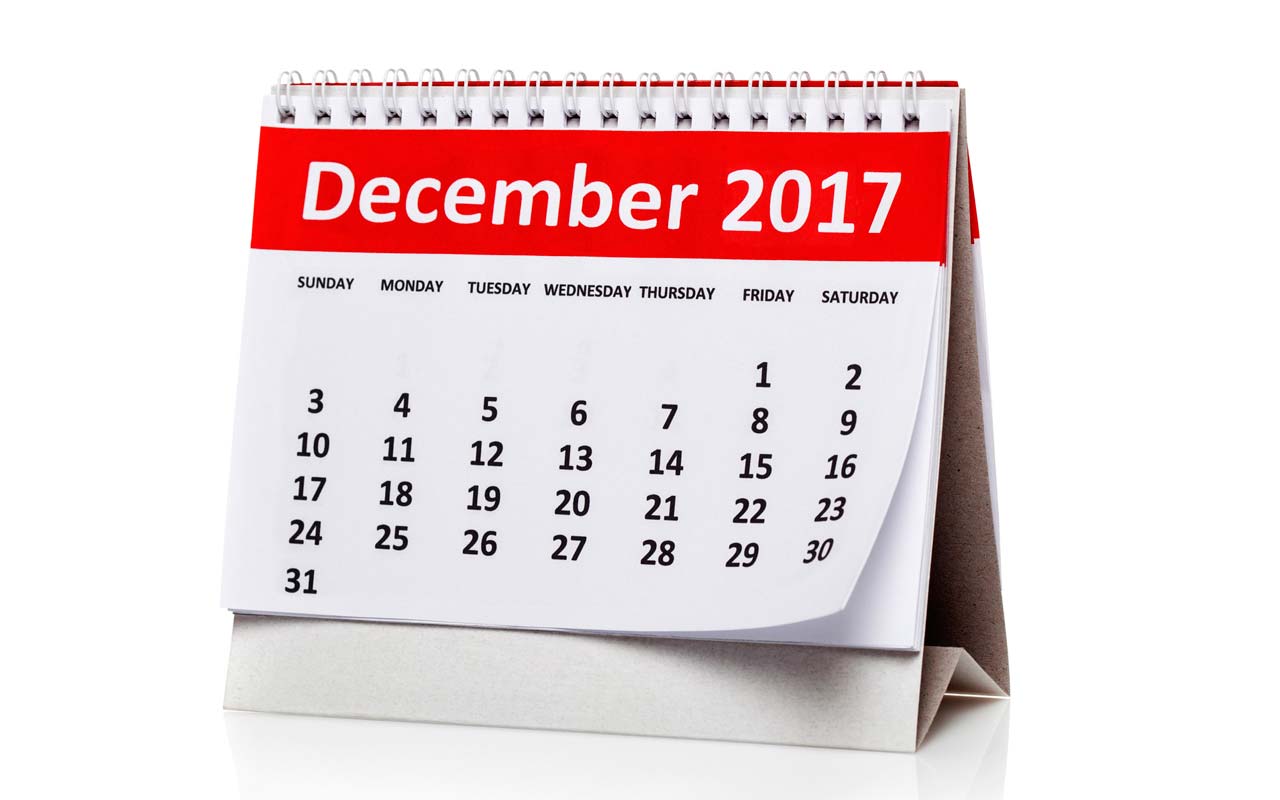4 Costly Government Penalties Retirees Should Avoid
Retirees facing the challenge of making their nest eggs last as long as they do are often surprised by the devastating impact that taxes can have on their cash flow.

Profit and prosper with the best of Kiplinger's advice on investing, taxes, retirement, personal finance and much more. Delivered daily. Enter your email in the box and click Sign Me Up.
You are now subscribed
Your newsletter sign-up was successful
Want to add more newsletters?

Delivered daily
Kiplinger Today
Profit and prosper with the best of Kiplinger's advice on investing, taxes, retirement, personal finance and much more delivered daily. Smart money moves start here.

Sent five days a week
Kiplinger A Step Ahead
Get practical help to make better financial decisions in your everyday life, from spending to savings on top deals.

Delivered daily
Kiplinger Closing Bell
Get today's biggest financial and investing headlines delivered to your inbox every day the U.S. stock market is open.

Sent twice a week
Kiplinger Adviser Intel
Financial pros across the country share best practices and fresh tactics to preserve and grow your wealth.

Delivered weekly
Kiplinger Tax Tips
Trim your federal and state tax bills with practical tax-planning and tax-cutting strategies.

Sent twice a week
Kiplinger Retirement Tips
Your twice-a-week guide to planning and enjoying a financially secure and richly rewarding retirement

Sent bimonthly.
Kiplinger Adviser Angle
Insights for advisers, wealth managers and other financial professionals.

Sent twice a week
Kiplinger Investing Weekly
Your twice-a-week roundup of promising stocks, funds, companies and industries you should consider, ones you should avoid, and why.

Sent weekly for six weeks
Kiplinger Invest for Retirement
Your step-by-step six-part series on how to invest for retirement, from devising a successful strategy to exactly which investments to choose.
Retirees facing the challenge of making their nest eggs last as long as they do are often surprised by the devastating impact that taxes can have on their cash flow. Although many people welcome the upfront tax breaks of contributing to traditional IRAs and 401(k) plans during their working years, they're not so thrilled when Uncle Sam demands his cut when they start tapping those retirement accounts.
But income taxes aren't the only way in which the government can chip away at your life savings in retirement or limit your anticipated benefits. Beware costly penalties or disincentives for acting too soon or too late or simply accumulating too much money. Take a look.

A Lifetime Reduction in Social Security Benefits for Early Claims
The age at which you start to collect Social Security benefits has a big impact on the amount of money you ultimately get from the program. The key age to know is your full retirement age. For people born between 1943 and 1954, full retirement age is 66. It gradually climbs toward 67 if your birthday falls between 1955 and 1959. For those born in 1960 or later, full retirement age is 67. You can collect Social Security as soon as you turn 62, but taking benefits before full retirement age results in a permanent reduction -- as much as 25% of your benefit if your full retirement age is 66.
- Another way you can get dinged for taking Social Security early: The "Social Security earnings test." Early claimers who are still working will forfeit $1 in benefits for every $2 you make over the earnings limit, which in 2017 is $16,920. Once you're past full retirement age, the earnings test disappears and you can make as much money as you want with no impact on benefits. Any benefits forfeited because earnings exceed the limits are not lost forever, however. At full retirement age, the Social Security Administration will recalculate your benefits going forward to take into account benefits lost to the test.
TAKE OUR QUIZ: Test Your Social Security IQ

A Penalty for Failing to Take Required Minimum Distributions (RMDs)
Once you turn 70 1/2, you must begin withdrawing funds -- whether you need the money to live on or not -- from your traditional individual retirement accounts (IRAs) and employer-sponsored retirement plans, such as 401(k)s.
How much to withdraw? You don't need a computer or a degree in accounting to figure it out. First, find the year-end balance of every traditional IRA you own. Second, add them together. Third, divide the total by a factor provided by the IRS that's based on your age and life expectancy. (If you don't want to do the math, use our RMD calculator.)
Generally, you must take your RMDs by December 31, but first-timers can wait to take their initial payout until as late as April 1 of the following year. If you don't take your required distribution by the deadline, you'll face a penalty equal to 50% of the amount you failed to withdraw.
If you miss the RMD deadline, though, don't automatically send a check to the IRS. The agency can -- and often does -- waive the penalty for taxpayers who have a good excuse, such as getting lousy advice from a tax preparer or IRA sponsor, say, or becoming seriously ill just before year-end when you had planned to make the required withdrawal.

A Penalty for Failing to Sign Up for Medicare at the Right Time
If you're already receiving Social Security benefits, you'll automatically be enrolled in Medicare and you'll get your Medicare card in the mail three months before your 65th birthday. Your coverage will start at the beginning of the month you turn age 65. (If your birthday is on the first day of the month, however, your coverage will start on the first day of the month before your birthday.)
If you aren't receiving Social Security benefits yet, you'll have to take steps to enroll in Medicare.You have a seven-month window to sign up – starting three months before the month you turn 65 and ending three months after your birthday month (called the "initial enrollment period"). It's a good idea to sign up before your birthday month so you can get coverage as early as possible.
- If you fail to enroll in Medicare during the initial enrollment period, you’ll have to pay a late-enrollment penalty of 10% of the Part B premium for every year you should have had coverage. The penalty applies as long as you receive Medicare benefits.
Note: If you have coverage through an employer with 20 or more employees, you don’t have to sign up for Medicare when you turn 65 because the group policy pays first and Medicare pays second. You’ll avoid a future penalty as long as you sign up for Part B within eight months of leaving your job.
TAKE OUR QUIZ: Making Sense of Medicare

The Death Tax
Die too wealthy, and the IRS will take one final swipe at your assets. The federal estate tax affects estates valued at $5.49 million (or $10.98 million for couples) in 2017. Assets left to a surviving spouse are not taxable.
While federal estate taxes only affect the extremely wealthy, state estate taxes, which kick in for estates valued at only $1 million in some states, could take a big bite out of your legacy. Your home and retirement accounts will be counted when your estate is valued for tax purposes, and proceeds from your life insurance could be counted, too, depending on how the policy is owned and who gets the money.
Profit and prosper with the best of Kiplinger's advice on investing, taxes, retirement, personal finance and much more. Delivered daily. Enter your email in the box and click Sign Me Up.
-
 Nasdaq Leads a Rocky Risk-On Rally: Stock Market Today
Nasdaq Leads a Rocky Risk-On Rally: Stock Market TodayAnother worrying bout of late-session weakness couldn't take down the main equity indexes on Wednesday.
-
 Quiz: Do You Know How to Avoid the "Medigap Trap?"
Quiz: Do You Know How to Avoid the "Medigap Trap?"Quiz Test your basic knowledge of the "Medigap Trap" in our quick quiz.
-
 5 Top Tax-Efficient Mutual Funds for Smarter Investing
5 Top Tax-Efficient Mutual Funds for Smarter InvestingMutual funds are many things, but "tax-friendly" usually isn't one of them. These are the exceptions.
-
 States That Tax Social Security Benefits in 2026
States That Tax Social Security Benefits in 2026Retirement Tax Not all retirees who live in states that tax Social Security benefits have to pay state income taxes. Will your benefits be taxed?
-
 What to Do With Your Tax Refund: 6 Ways to Bring Growth
What to Do With Your Tax Refund: 6 Ways to Bring GrowthUse your 2024 tax refund to boost short-term or long-term financial goals by putting it in one of these six places.
-
 What Does Medicare Not Cover? Eight Things You Should Know
What Does Medicare Not Cover? Eight Things You Should KnowMedicare Part A and Part B leave gaps in your healthcare coverage. But Medicare Advantage has problems, too.
-
 12 Great Places to Retire in the Midwest
12 Great Places to Retire in the MidwestPlaces to live Here are our retirement picks in the 12 midwestern states.
-
 15 Cheapest Small Towns to Live In
15 Cheapest Small Towns to Live InThe cheapest small towns might not be for everyone, but their charms can make them the best places to live for plenty of folks.
-
 15 Reasons You'll Regret an RV in Retirement
15 Reasons You'll Regret an RV in RetirementMaking Your Money Last Here's why you might regret an RV in retirement. RV-savvy retirees talk about the downsides of spending retirement in a motorhome, travel trailer, fifth wheel, or other recreational vehicle.
-
 The 24 Cheapest Places To Retire in the US
The 24 Cheapest Places To Retire in the USWhen you're trying to balance a fixed income with an enjoyable retirement, the cost of living is a crucial factor to consider. Is your city the best?
-
 The Six Best Places to Retire in New England
The Six Best Places to Retire in New Englandplaces to live Thinking about a move to New England for retirement? Here are the best places to land for quality of life, affordability and other criteria.
